Kettering College Celebrates Diversity at Recent Event
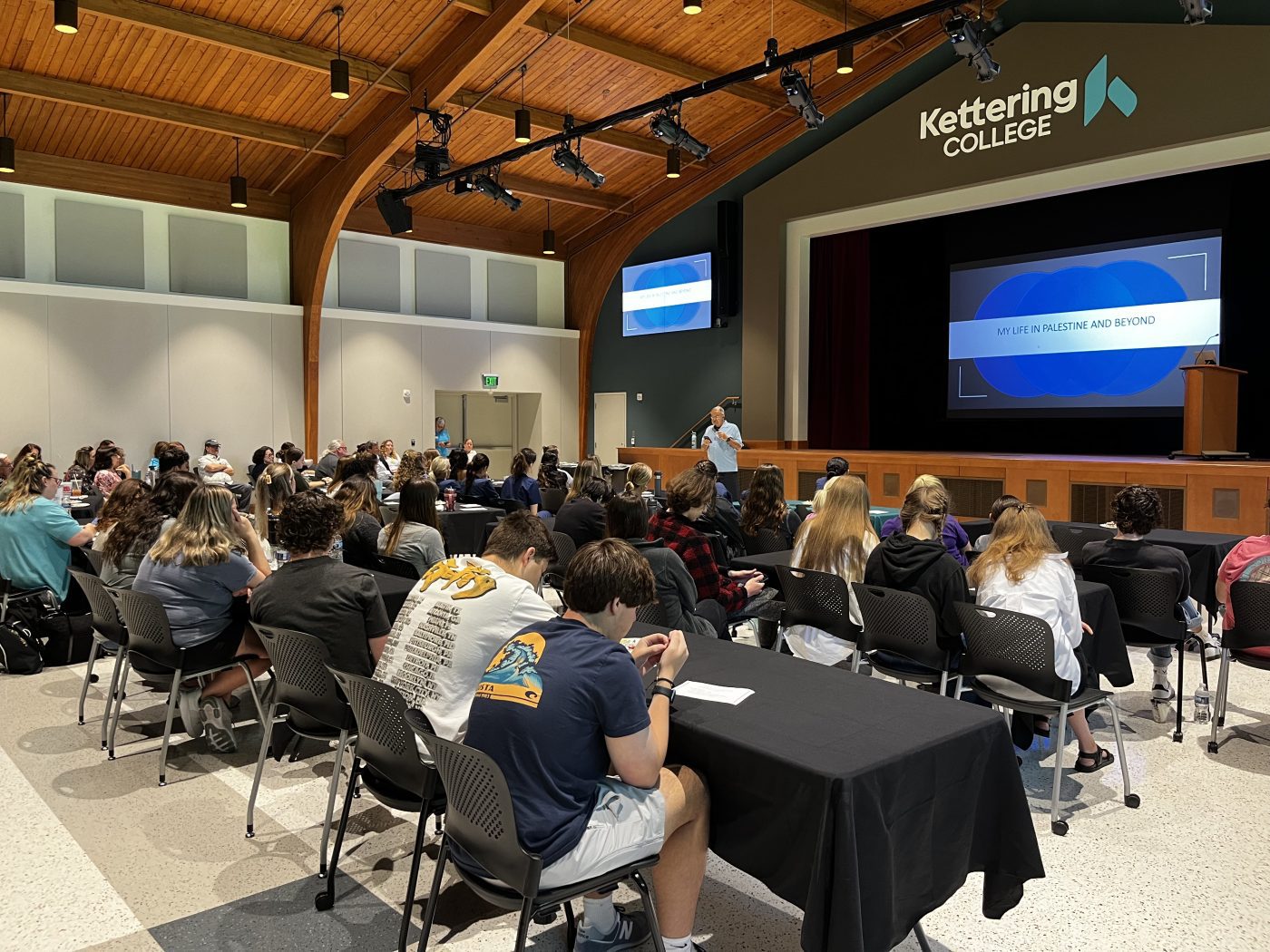
May 21, 2024 — Kettering College’s Collegiate Life committee presented the second annual World Diversity Day. The event was created to celebrate diversity and share stories to help deepen understanding and appreciation on campus and to give students insights to help them compassionately serve all patients.
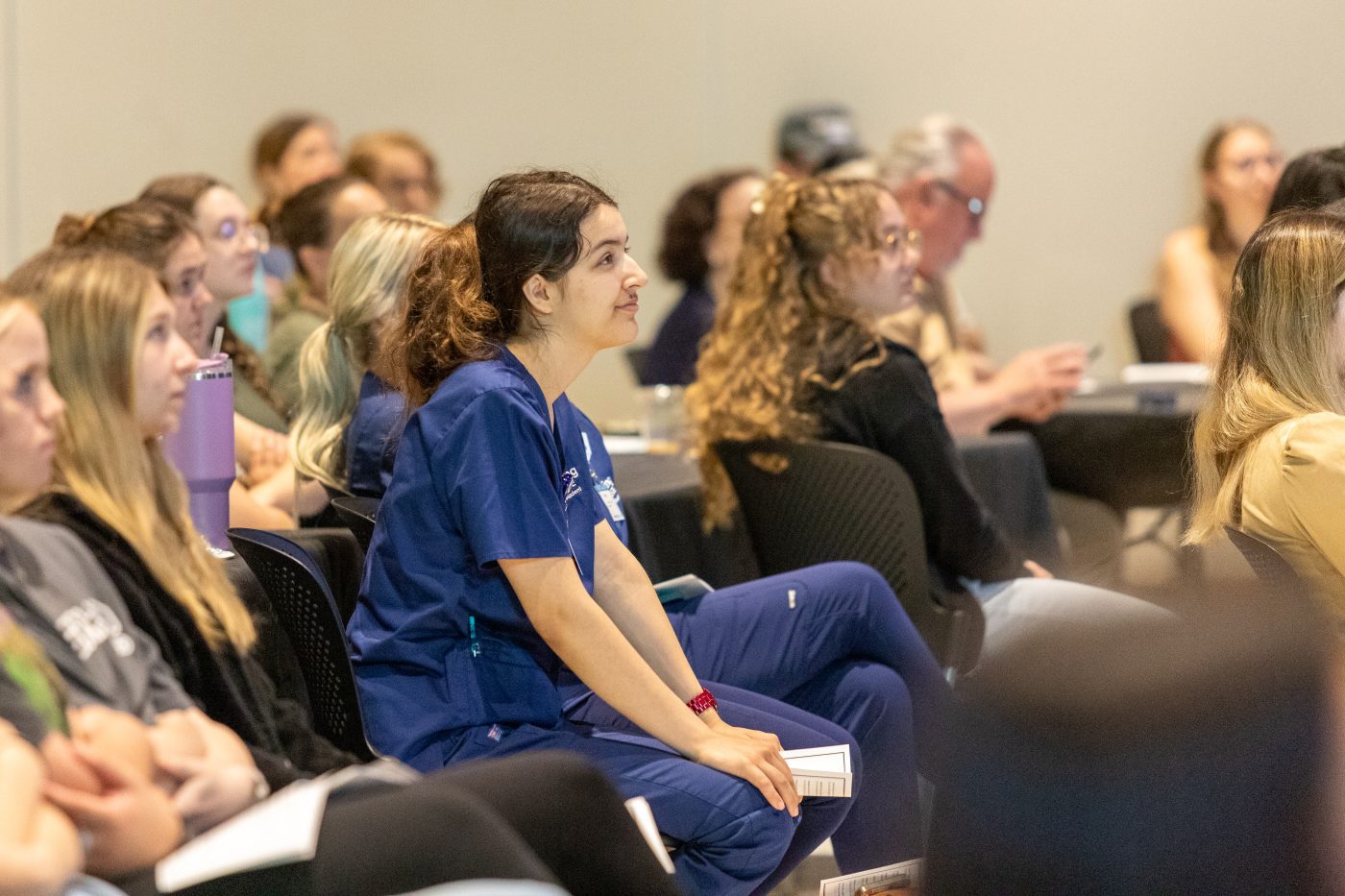
This year’s theme was focused on the journeys of three speakers who immigrated to America from other countries. Students, faculty, and staff filled the auditorium to hear and learn from the experiences of those who have had to work hard to call America their home in search of better opportunities.
Dr. Tuta Ionescu, Radiologic Sciences & Technology professor at Kettering College, talked about her personal experience moving from Communist Romania to America when she was a teenager with her husband. When she was a child, she recalls standing in line for food rations of bread.
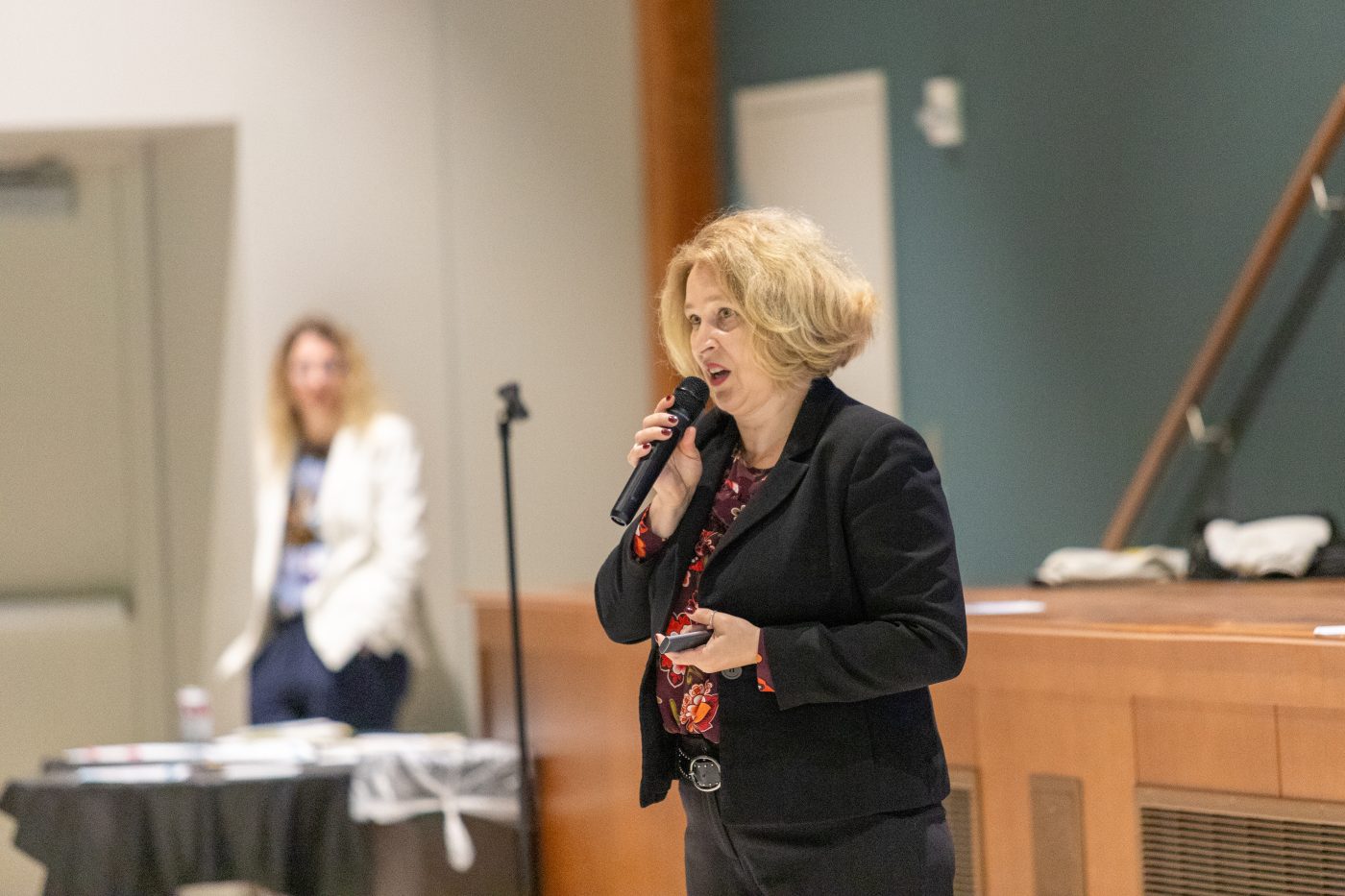
She admitted, “It’s not pleasant to speak about my journey, but if I don’t tell you about it, how would you learn?” Learning about each other, she said, is one of the best ways to help each other feel included and welcomed. She added that often it’s hard for immigrants to share their stories because “They hold their culture so close to their hearts. They’re afraid of letting that go because they don’t know what this new world has for them.”
She came to the States with the hope of a better future but shared that it wasn’t easy at first. She said, “I cried a lot. I had such a fear of failing.” When she began college in America, she struggled to speak English. She said, “Not speaking English does not mean you don’t have intellect.” She was getting excellent grades and was grateful some of her teachers recognized her potential and believed in her.
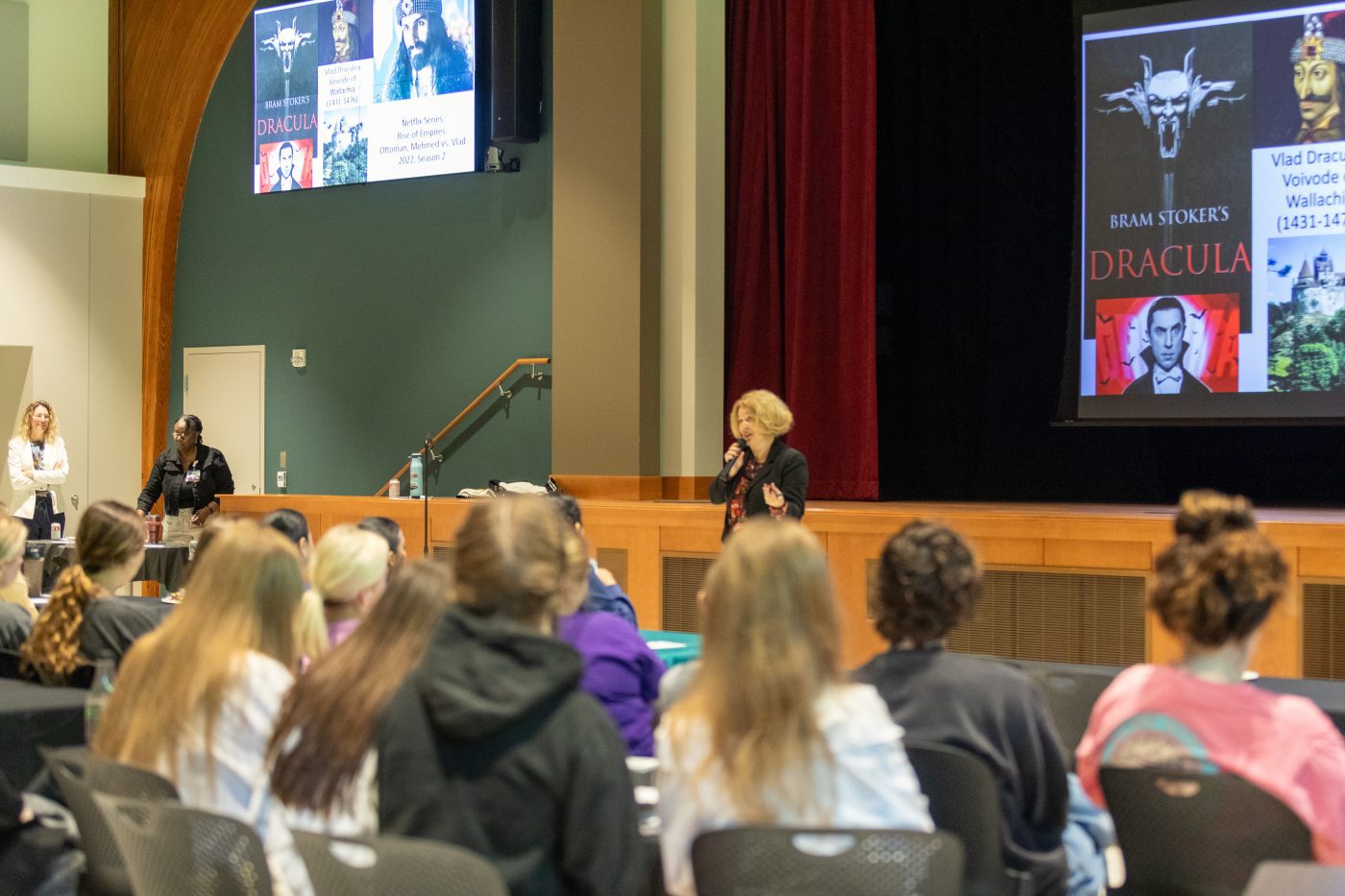
She explained how challenging it was to leave a country that was so difficult to survive in yet that she loved so dearly. Dr. Ionescu said, “There was no way to go back to my country if this didn’t work out. There was no education there, and we had no money. Survival for my husband and I was not an option that we would throw away—it was a must. Survival is the thing I came out with from Communism.”
She went on to earn several degrees, including a doctorate and is proud of the grit and determination she put forth to survive and pour into her children, whom she said have been raised learning from her experiences and are all pursuing careers in healthcare as well.
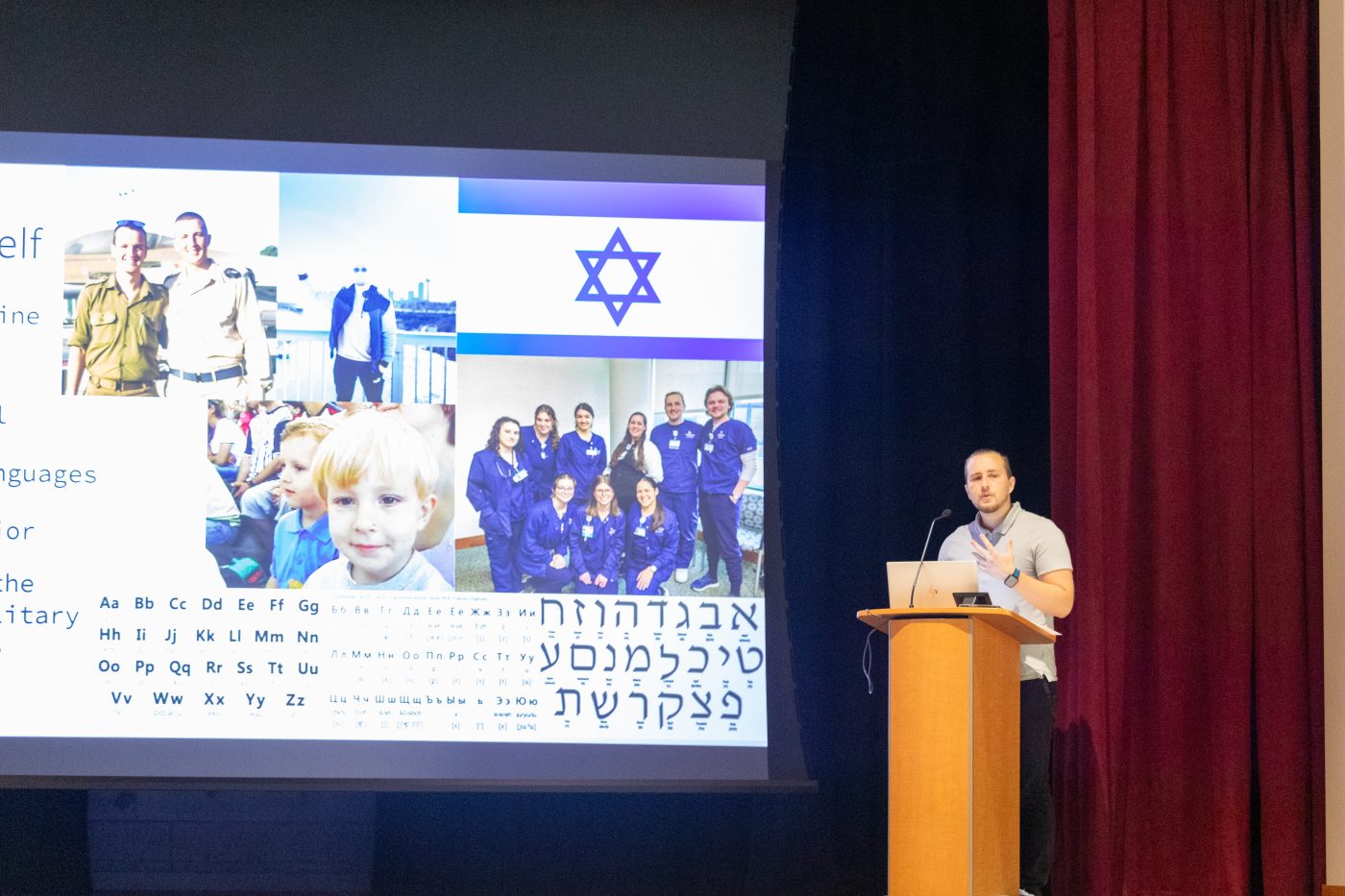
Victor Elkine, a Nursing student at Kettering College, shared about his journey of being born and raised in Israel before moving to America to study.
Victor’s parents were living in Russia when Victor’s older sister became ill. Her doctor advised them to seek better medical care in Israel, so their family made the big decision to leave their home country and immigrate to Israel.
Although his father has Jewish ancestry, the family discovered Christianity in a Seventh-day Adventist church in Israel. Victor spoke about the challenges this presented in a Jewish nation, as he tried to blend in with his peers. After serving in the Israeli army for nearly three years, Victor decided to pave a new way in the United States, where he is now studying to be a nurse, just as his grandmother had done in the former Soviet Union.
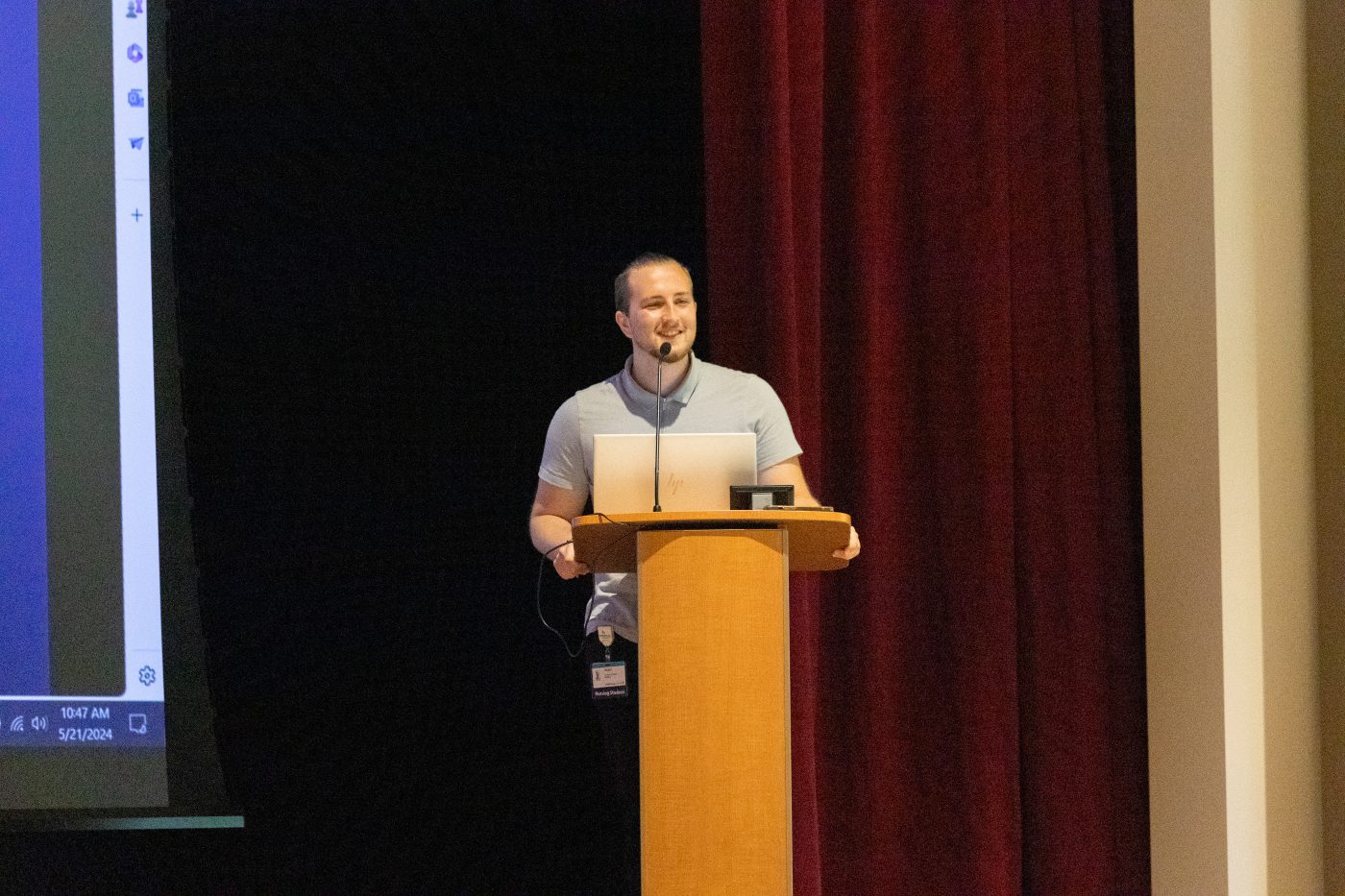
Having lived in Israel, he is knowledgeable about the Jewish culture. In his presentation, he educated students on how best to serve patients who are observing Jewish traditions such as keeping kosher and observing Shabbat and Passover.
The day’s last speaker was Dr. Basel Yanes, a retired doctor in oncology whose journey eventually brought him to America from Palestine and Syria. When he was a child, his family was forced to leave Palestine due to an attack on their country, so they started a new life in Damascus, Syria. His family roots had been firmly planted in Palestine for generations.
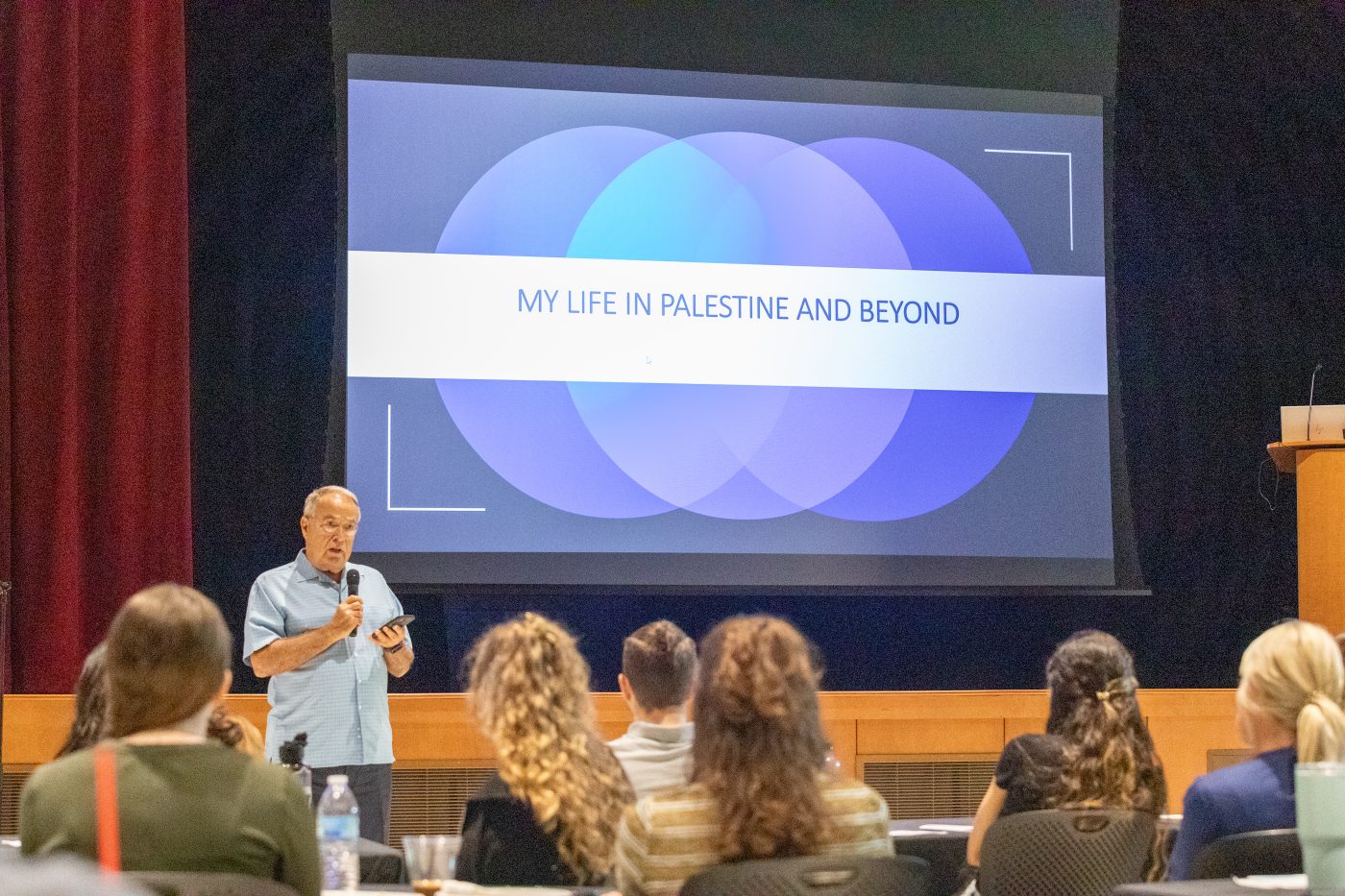
In Syria, Dr. Yanes realized access to healthcare was limited. Out of this awareness, he decided to attend medical school. His medical education was in Arabic, but in his last two years he studied in English to be considered for work in the United States. He was offered an internship in Cleveland, Ohio in 1971, and he has been here ever since, delivering healthcare that would not exist in Palestine or Syria.
He said, “Immigration is an extremely difficult process. You have the emotional stress of leaving your family along with cultural shock and a problem with the language.” Although he could read English, he quickly realized he could not speak it or understand it.
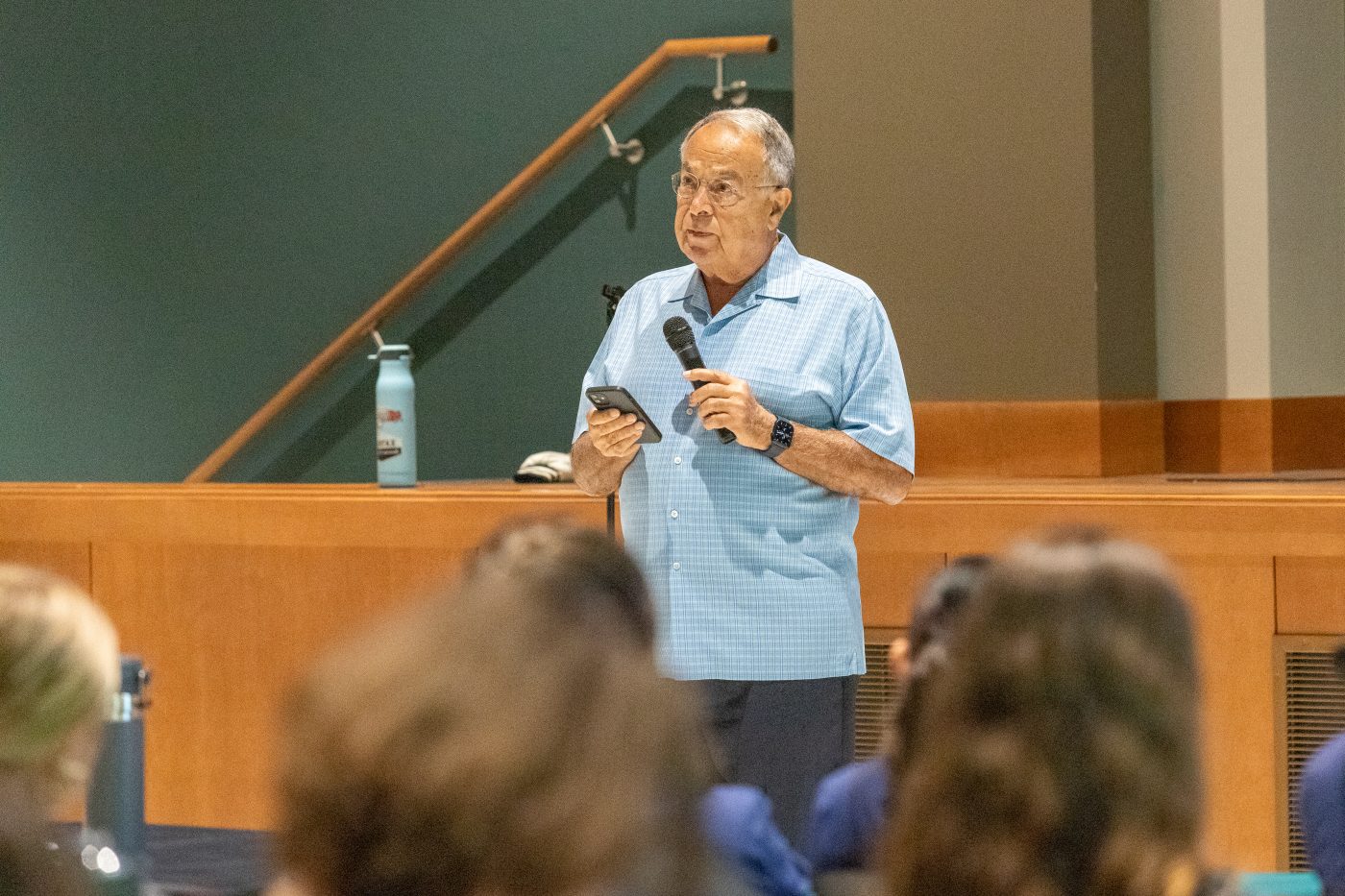
Dr. Basel told the group his career has been very rewarding. Throughout his career, he has seen a lack of healthcare and has watched people struggle as a result. He said, “This has led me to see that healthcare is a basic human right.”
He said, “Being a Palestinian is a burden and often a painful experience. It’s a part of my life I did not choose, but I would not trade for anything else.” He said he considers himself fortunate to have grown up in times of struggle to better appreciate his journey, which has been one that has touched countless lives.
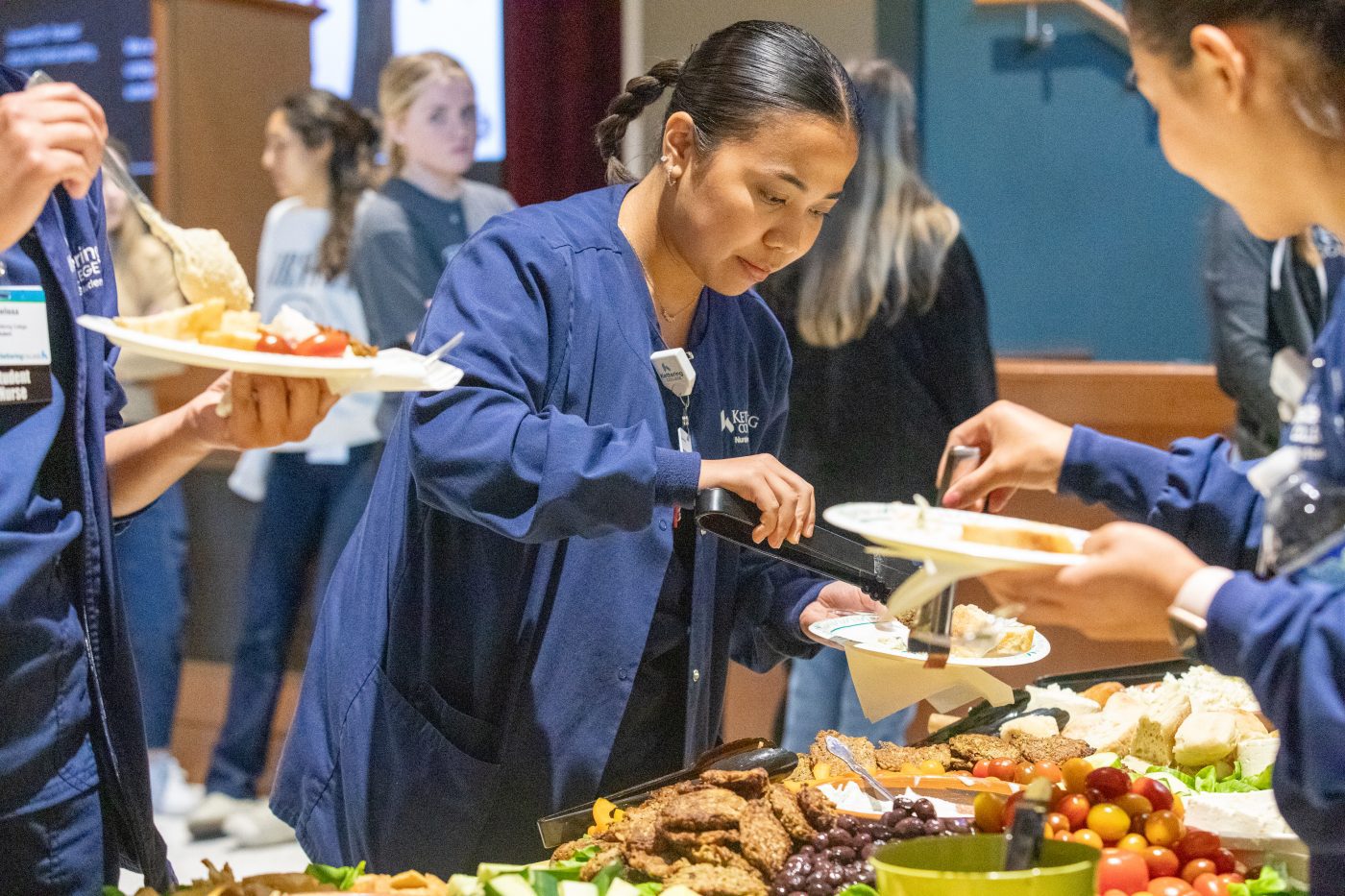
The event ended by enjoying food that represented each speaker’s country of origin. Conversations continued over the meal between attendees and presenters. Dr. Tuta Ionescu noted in her presentation one of the best ways to know someone’s story is to listen and give that person your time, preferably while sharing a meal, which is exactly what World Diversity Day aimed to accomplish.
Print This Page